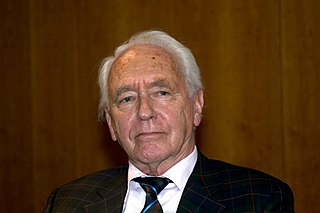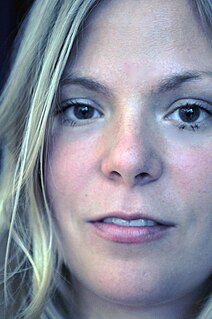
Wolf Dietrich Schneider is a German journalist, author and language critic.

Vitold Rek is a double bassist, composer and music educator. He studied classical double bass at the Academy of Music in Kraków when Krzysztof Penderecki was rector there. His playing "unites jazz influences with classical and East European folk elements", with a focus on live performance and composition.

Torsten de Winkel is a German musician, composer, and philosopher primarily active in the jazz, world music, fusion and electronic music genres. He is known as an electric and acoustic guitarist but also records and performs on electric sitar, keyboards, and percussion. Since the 1990s, he has initiated and participated in several platforms aimed at combining the arts and sustainability.

Günter Lenz is a German jazz bassist and composer.
Rolf Schweizer was a German composer, choirmaster and church music director, who was based primarily at Pforzheim. Schweizer was part of the movement Neues Geistliches Lied, and his compositions, several of which appear in the Protestant hymnal Evangelisches Gesangbuch (EG), were heavily influenced by contemporary secular music, especially jazz.

Natias Neutert is a German artist, author, poet, orator, and translator who lives in Hamburg and Berlin.
Peter Janssens was a German musician and composer who wrote and performed incidental music for several theatres, and songs and musicals of the genre Neues Geistliches Lied, a pioneer of Sacropop. He worked at a German theatre in Buenos Aires, set several works by Ernesto Cardenal to music and composed in 1992 a passion music, in memory of 500 years after the European invasion in Latin America.

Tilo Medek, originally Müller-Medek, was a German classical composer, musicologist and music publisher. He grew up in East Germany, but was inspired by the Darmstädter Ferienkurse. He composed radio plays and incidental music. His setting of Lenin's Decree on Peace led to restrictions, and after he showed solidarity with the expatriated Wolf Biermann, he also had to move to the West, where he composed an opera Katharina Blum based on Heinrich Böll's novel, and worked in education. He received international awards from 1967 on.
Wolfram Röhrig was a German pianist, composer and conductor, who also worked under the alias Wolf Droysen. A jazz pianist, he was the director of music departments of the broadcasters Hessischer Rundfunk and Süddeutscher Rundfunk, responsible for light music and jazz. With the choir Nürnberg Lehrergesangverein from Nuremberg, Germany, he performed and recorded works such as Te Deum compositions by Anton Bruckner and Heinrich Sutermeister, and Max Reger's Der 100. Psalm.
Kurt Honolka was a German musicologist, journalist, and music and theatre critic. He is known as a translator of the librettos of Czech operas into German, such as Smetana's Dalibor and Janáček's Osud.
Wolfgang Boetticher was a German musicologist and longtime lecturer at the University of Göttingen.
Horst Seeger, pseudonyme Horst Schell, was a German musicologist, music critic, dramaturg, librettist and opera director.

Clemens Höslinger is an Austrian historian, music journalist and librarian.

Ann-Helena Schlüter is a Swedish-German pianist, organist, composer and poet.
Norbert Linke is a German composer and musicologist.
Jo Thönes is a German percussionist, Jazz drummer and composer.
Werner Gustav Rudolf Gößling was a German conductor, Choir director, composer and university lecturer. He was chief conductor of the Philharmonisches Staatsorchester Halle and the Robert Franz Singakademie in Halle. In 1951, he was appointed General Music Director. From 1956 to 1958, he built up the first Chinese symphony orchestra in the European style.
Nathan "Noto" Notowicz was a German musicologist and composer.
Bert Noglik is a German jazz journalist and music critic.
Andre Asriel was an Austrian-German composer.









